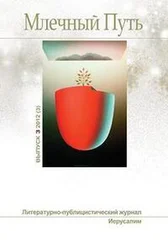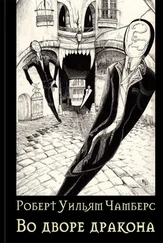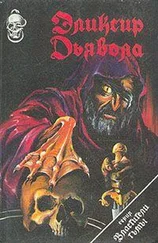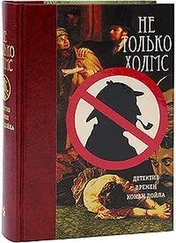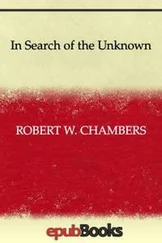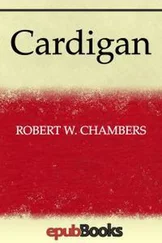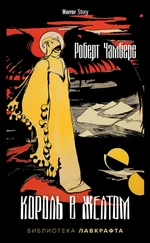Police!!!
Robert W. Chambers
To Louise Jocelyn
All the pretty things you say,
All the pretty things you do
In your own delightful way
Make me fall in love with you,
Turning Autumn into May.
Every day is twice as gay
Just because of you, Louise!
Which is going some, you say?
In my dull, pedantic way
I am fashioning my lay
Just because I want to please.
Just because the things you say,
Just because the things you do
In your clever, charming way
Make me fall in love with you.
That is all, my dear, to–day.
R.W.C.
Christmas, 1915.
Give me no gold nor palaces
Nor quarts of gems in chalices
Nor mention me in Who is Who
I'd rather roam abroad with you
Investigating sky and land,
Volcanoes, lakes, and glacial sand
I'd rather climb with all my legs
To find a nest of speckled eggs,
Or watch the spotted spider spin
Or see a serpent shed its skin!
Give me no star–and–garter blue!
I'd rather roam around with you.
Flatten me not with flattery!
Walk with me to the Battery,
And see in glassy tanks the seals,
The sturgeons, flounders, smelt and eels
Disport themselves in ichthyic curves—
And when it gets upon our nerves
Then, while our wabbling taxi honks
I'll tell you all about the Bronx,
Where captive wild things mope and stare
Through grills of steel that bar each lair
Doomed to imprisonment for life—
And you may go and take your wife.
Come to the Park [1] Central Park, filthiest, cruellest and most outrageous of zoological exhibitions.
with me;
I'll show you crass stupidity
Which sentences the hawk and fox
To inactivity, and locks
The door of freedom on the lynx
Where puma pines and eagle stinks.
Never a slaver's fetid hold
Has held the misery untold
That crowds the great cats' kennels where
Their vacant eyes glare blank despair
Half crazed by sloth, half dazed by fear
All day, all night, year after year.
To the swift, clean things that cleave the air
To the swift, clean things that cleave the sea
To the swift, clean things that brave and dare
Forest and peak and prairie free,
A cage to craze and stifle and stun
And a fat man feeding a penny bun
And a she–one giggling, "Ain't it grand!"
As she drags a dirty–nosed brat by the hand.
On a beautiful day in spring as I was running as hard as I could run pursued by the New York police and a number of excited citizens, my mind, which becomes brilliantly active under physical exhilaration, began to work busily.
I thought about all sorts of things: I thought about hard times and financial depression and about our great President who is in a class all alone with himself and soon to become extinct; I thought about art and why there isn't any when it's talked about; I thought of macro–lepidoptera, of metagrammatism, monoliths, manicures, and monsoons.
And all the time I was running as fast as I could run; and the faster I ran the more things I thought about until my terrific pace set my brain whizzing like a wheel.
I felt no remorse at having published these memoirs of my life—which was why the police and populace were pursuing me, maddened to frenzy by the fearless revelation of mighty scientific truths in this little volume you are about to attempt to read. Ubicumque ars ostentatur, veritas abesse videtur!
I thought about it clearly, calmly, concisely as I fled. The maddened shouts of the prejudiced populace did not disturb me. Around and around the Metropolitan Museum of Art I ran; the inmates of that institution came out to watch me and they knew at a glance that I was one of them for they set up a clamor like a bunch of decoy ducks when one of their wild comrades comes whirling by.
"Police! Police!" they shouted; but I went careering on uptown, afraid only that the park squirrels might club together to corner me. There are corners in grain. Why not in—but let that pass.
I took the park wall in front of the great Mr. Carnegie's cottage at a single bound. He stood on his terrace and shouted, "Police!" He was quite logical.
The Equal Franchise Society was having a May party in the park near the Harlem Mere. They had chosen the Honorable William Jennings Bryan as Queen of the May. He wore low congress–gaiters and white socks; he was walking under a canopy, crowned with paper flowers, his hair curled over his coat collar, the tips of his fingers were suavely joined over his abdomen.
The moment he caught sight of me he shouted, "Police!"
He was right. The cabinet lacked only me.
And I might have consented to tarry—might have allowed myself to be apprehended for political purposes, had not a nobler, holier, more imperative duty urged me northward still.
Though all Bloomingdale shouted, "Stop him!" and all Matteawan yelled, "Police!" I should not have consented to pause. Even the quackitudinous recognition spontaneously offered by the Metropolitan Museum had not been sufficient to decoy me to my fellows.
I knew, of course, that I could find a sanctuary and a welcome in many places—in almost any sectarian edifice, any club, any newspaper office, any of the great publishers', any school, any museum; I knew that I would be welcomed at Columbia University, at the annex to the Hall of Fame, in the Bishop's Palace on Morningside Heights—there were many places all ready to receive, understand and honour me.
For a sufficiently crippled intellect, for a still–born brain, for the intellectually aborted, there is always a place on some editorial, sectarian, or educational staff.
Try It!
But I had other ideas as I galloped northward. The voiceless summons of the most jealous of mistresses was making siren music in my ears. That coquettish jade, Science, was calling me by wireless, and I was responding with both legs.
And so, at last, I arrived at the Bronx Park and dashed into the Administration Building where everybody rose and cheered me to the echo.
I was at home at last, unterrified, undismayed, and ready again as always to dedicate my life to the service of Truth and to every caprice and whim of my immortal mistress, Science. But I don't want to marry her.
Magna est veritas! Sed major et longinquo reverentia.
Being a few deathless truths concerning several mysteries recently and scientifically unravelled by a modest servant of Science.
Quo quisque stultior, eo magis insolescit.
Although the man's back was turned toward me, I was uncomfortably conscious that he was watching me. How he could possibly be watching me while I stood directly behind him, I did not ask myself; yet, nevertheless, instinct warned me that I was being inspected; that somehow or other the man was staring at me as steadily as though he and I had been face to face and his faded, sea–green eyes were focussed upon me.
It was an odd sensation which persisted in spite of logic, and of which I could not rid myself. Yet the little waitress did not seem to share it. Perhaps she was not under his glassy inspection. But then, of course, I could not be either.
Читать дальше

